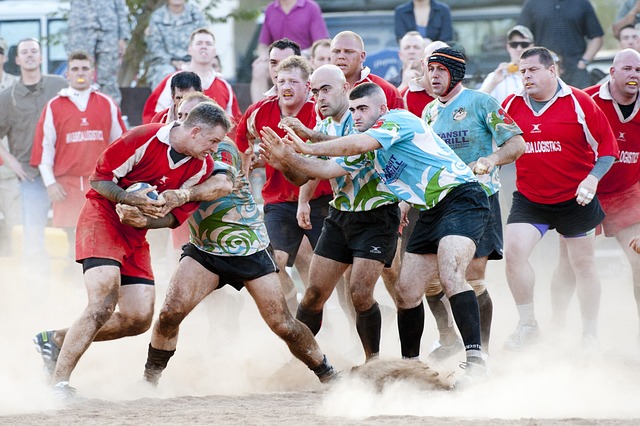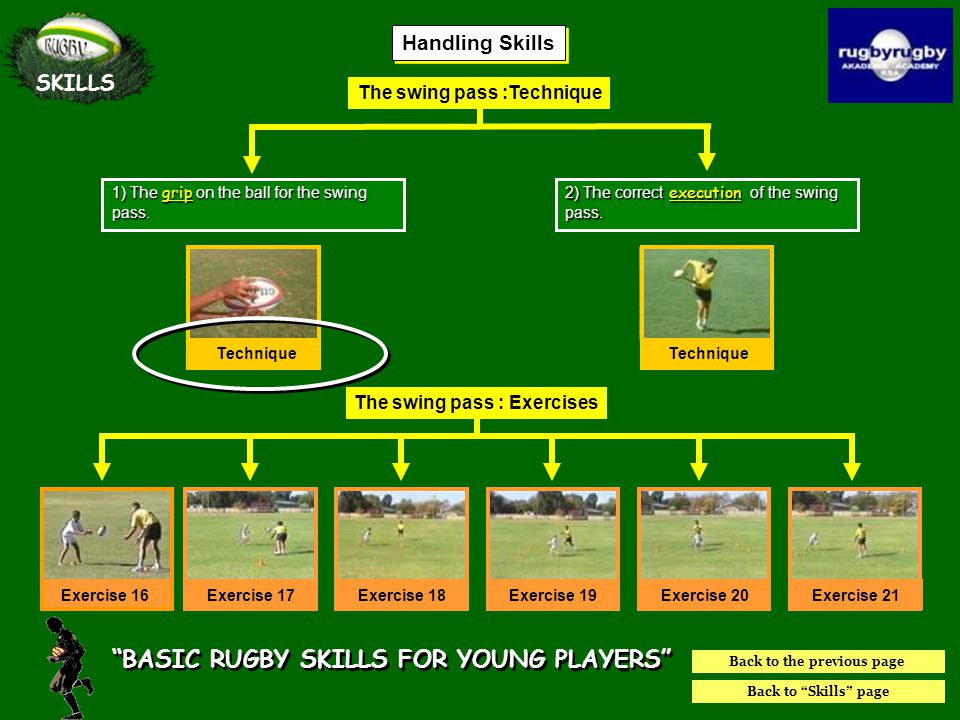
A rugby advantage is when the opponent team gains territory. This may be due to an infringement or tactical advantage. This advantage may be temporary or permanent. There is a wide variety of tactics that can be used, such as a cross field kick, a no-look pass or a chip and chase.
It is important to be able to tell the difference between an opportunity and a punishment. A penalty is an infringement that can result in a resulting injury. A penalty can be a disadvantage but it can also bring benefits. A penalty can be applied to a team who fails to take possession or is unable to win the match.
A team has a territorial advantage if it is located within its own 22. It's easier to understand a territorial advantage than one that is tactically advantageous. They can play a scrum or kick the ball into touch to get a five-metre lineout if they are within their own 22.

A team can have a tactical advantage if they have a significant advantage in speed and skill. A team can try to outdo the opposition by playing a chip-and chase or a long, cutout pass. The team can also attempt to run in unopposed. A tactical advantage gives a team the ability to run unopposed when the opposition is exhausted and has no defenses. If the winger gets the ball and runs ahead unchallenged, a team may also run in unopposed.
The advantage rule can be compared to the penalty rules in football. A penalty refers to a foul that can result in the game being suspended for a while. A penalty is a foul that results in the game being stopped for a time. The offending team will then be subject to the normal rules. If an advantage is called, the referee will award the advantage to the non-offending team. This allows the offending team to gain territory, and score a touchdown.
An advantage can last as long as the referee allows it to. A rugby advantage is one that the non-offending team holds territory in their own 22. It is the team in possession that is awarded the advantage. If the non-offending side is knocked down, the advantage will be forfeited. Most cases will result in the advantage being called over after one or more phases depending on the offense team.
When an advantage is called, a referee waves his arm forward to signal the advantage. He then says advantage 'x team'. If there's a scoring chance, he will again say advantage 'x'. If no advantage is gained, the referee will whistle.

The advantage period can last for a few minutes or a few phases, depending on the rules of the game. It is important to note that an advantage cannot last for longer than the referee thinks is appropriate. The referee will allow an advantage to last for as long as the team is playing well in their 22. Referees will stop play when the advantage is exhausted.
FAQ
Why is an extreme sport popular?
Extreme sports are dangerous. Extreme sports can be dangerous, but they provide adrenaline-pumping thrills as well as a feeling of accomplishment.
Extreme sports can be expensive and time-consuming. This makes them available to people who otherwise wouldn't have access.
Extreme sports are popular because of these factors. If you are considering taking up extreme sports, consider whether you would be willing to take on a risk that could lead to your death.
Why do people enjoy extreme sports?
Extreme sports are popular for many reasons.
First, they offer excitement.
Second, extreme sports are exciting. Extreme sports can be unpredictable and scary.
Third, they offer people the opportunity to push their limits. You never know what will happen next!
Fourth, they let people get away from every day life.
Fifth, they allow people the freedom to express themselves through their unique art forms. Extreme sports include surf carving, which is an artistic expression.
Sixth, they help people stay fit. Many extreme sports are safe for your body. For example, skydiving helps improve coordination, balance, and strength.
Extreme sports are great fun. It's fun to be part of a group and have a good time, especially when everyone has a good time.
What companies would be most likely to sponsor extreme sporting events?
Sponsors of extreme sports events such as BMX racing and skateboarding are often large corporations with huge advertising budgets. They are often active in the local community where they work. For example, Coca-Cola sponsors many local sporting events and other activities throughout North America. The company also sponsors youth programs and camps at the national and local levels. In addition, Coke sponsors the annual "Coca-Cola Rock 'N' Roll Marathon" in New York City. This event attracts about 100,000 runners worldwide.
What can go wrong during extreme sports?
Extreme sports can present many challenges. You could fall off cliffs or get injured.
It is possible to avoid these problems by being aware of them and taking precautions.
You just need to make sure that you have the right equipment and know how to use it properly.
There will always be someone to assist you if you get hurt while doing extreme sport. Medical treatment will be provided if you are hurt.
Sometimes injuries happen suddenly. Sometimes, this happens because of poor judgment.
If you are too close to a cliff edge, you could slip and fall. Hypothermia could also result from jumping into icy water.
Other times, accidents occur because of mistakes made by others. In some instances, injuries may be caused by another party.
Sometimes bad luck can lead to unfortunate events. One example is that you might be struck by a rock while you're falling. You might also be struck with lightning.
Statistics
- Overall participation has grown by more than 60% since 1998 - from 5.9 million in 1998 to 9.6 million in 2004 Artificial Wall Climbing. (momsteam.com)
- Nearly 98% of all "frequent" roller hockey participants (those who play 25+ days/year) are male. (momsteam.com)
- Landscaping and grounds-keeping— according to government labor statistics, about 18 out of 100,000 workers in the landscaping industry are killed on the job each year. (rosenfeldinjurylawyers.com)
- Since 1998, overall participation has grown nearly 25% - from 5.2 million in 1998 to 6.5 million in 2004. (momsteam.com)
- Nearly 40% of all mountain bikers have at least graduated from college. (momsteam.com)
External Links
How To
How do I learn how to skateboard?
Skating is a sport where you use your feet to move on ice or snow. Skating can be done alone or with friends. It requires coordination and balance. The first thing you need to learn is how to stand up on the board. Then practice balancing while moving forward and backward. Finally, try jumping off ramps or stairs. You'll be able to glide faster and farther once you have mastered these skills.
Here are some tips to help you get started in skating.
-
You should determine what type of skates are best for you. There are many types of skates: inline skates and roller blades; speed skates; figure skates; etc. Depending on your level of experience, you can choose the right kind of skates. If you're new to skating, the best options are inline skates, speed skates, and roller blades. Figure skaters prefer boots that offer support throughout their performances.
-
Buy proper equipment. The purpose of your gear selection will depend on whether it is for competitive events or simply to enjoy skating in the park. You should choose durable and well-fitting skates if you intend to compete.
-
Try new techniques. You can improve any skill with practice. It's not necessary to wait until you are proficient in a particular skill to learn it. Instead, practice simple movements like walking backwards, sliding sideways or spinning. This will make it easier to master difficult maneuvers later.
-
Keep learning. Don't expect to become skilled overnight. The best skaters spend years honing their craft. They never stop learning. You have many options to improve your technique. For example, you could take lessons at a local rink, join a recreational league, watch videos online or attend workshops.
-
Be patient. Don't be discouraged if you have difficulty with a difficult maneuver. Just keep practicing. You will eventually be able to do more advanced stunts.
-
Have fun. Skating is a great sport for beginners because it doesn't involve expensive equipment and requires no special training. It's also a lot fun!